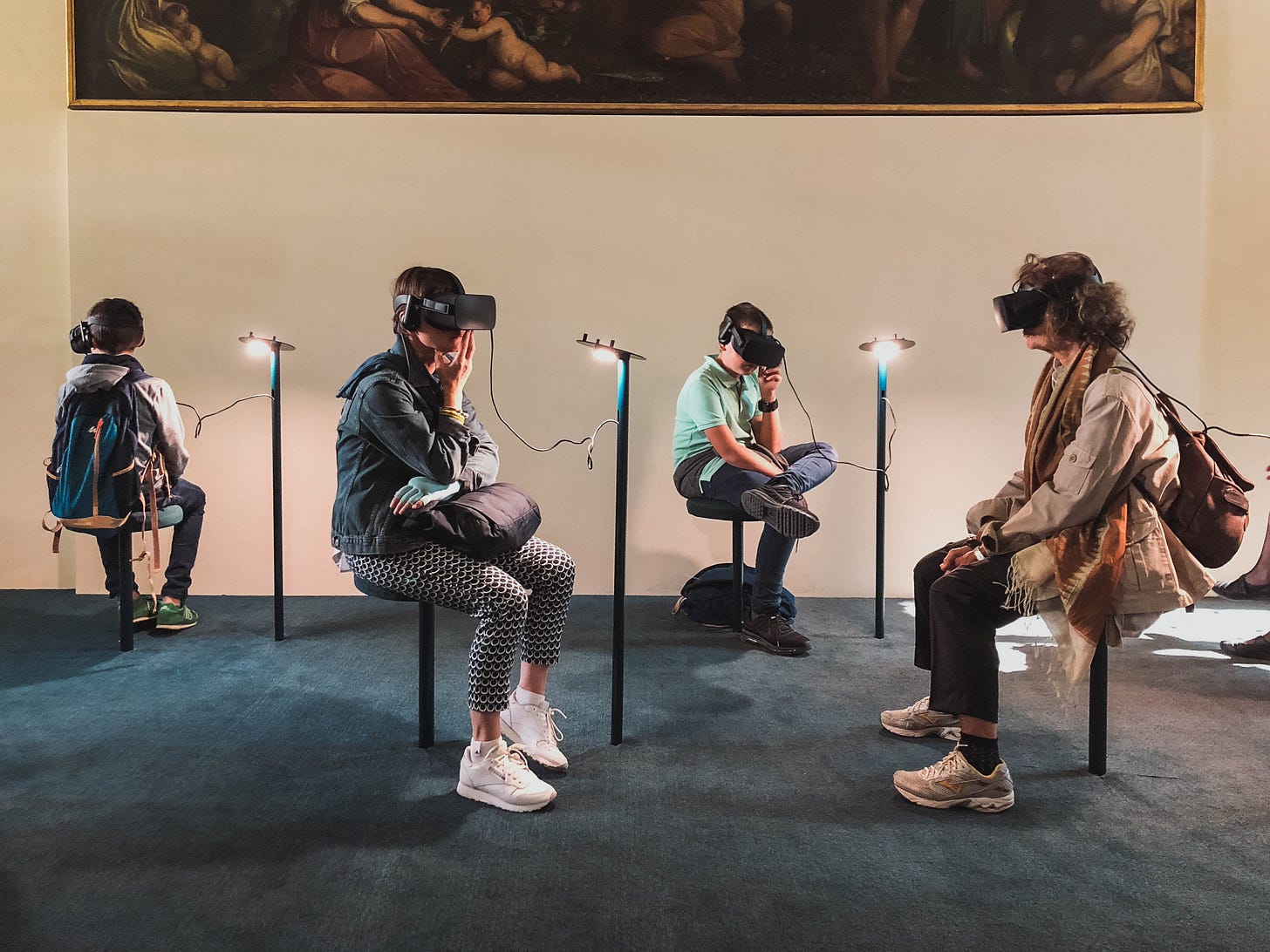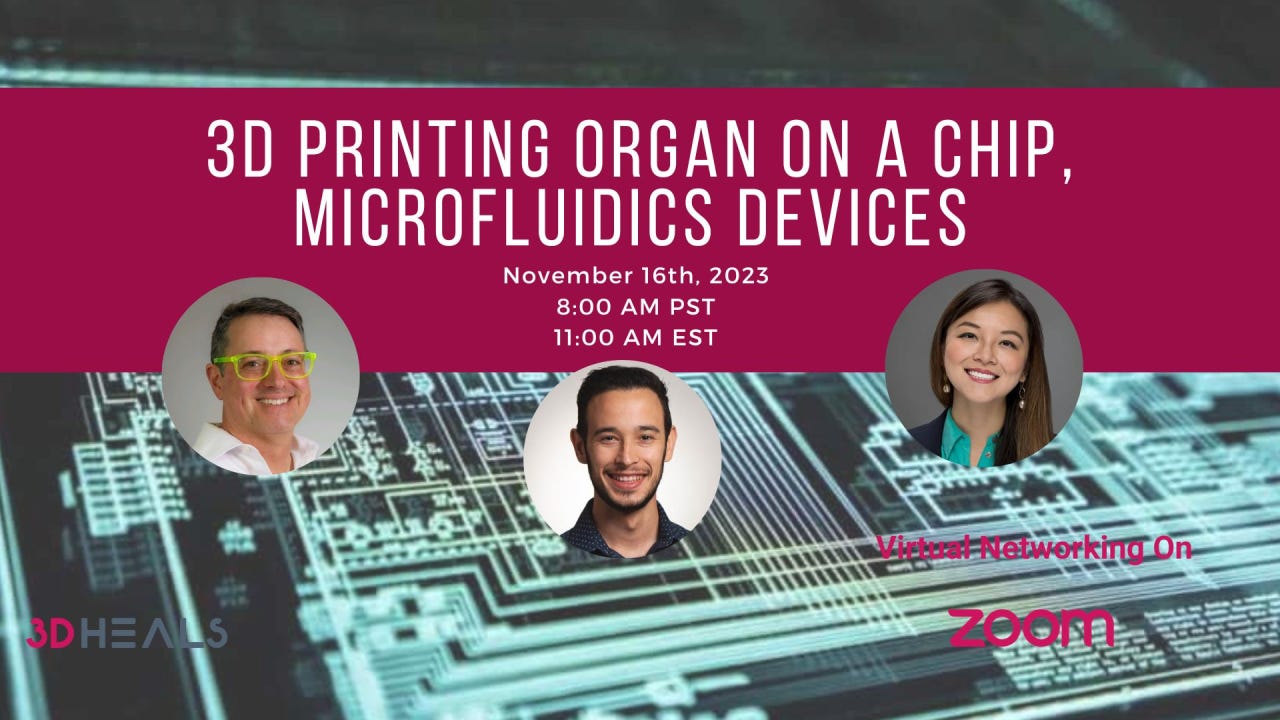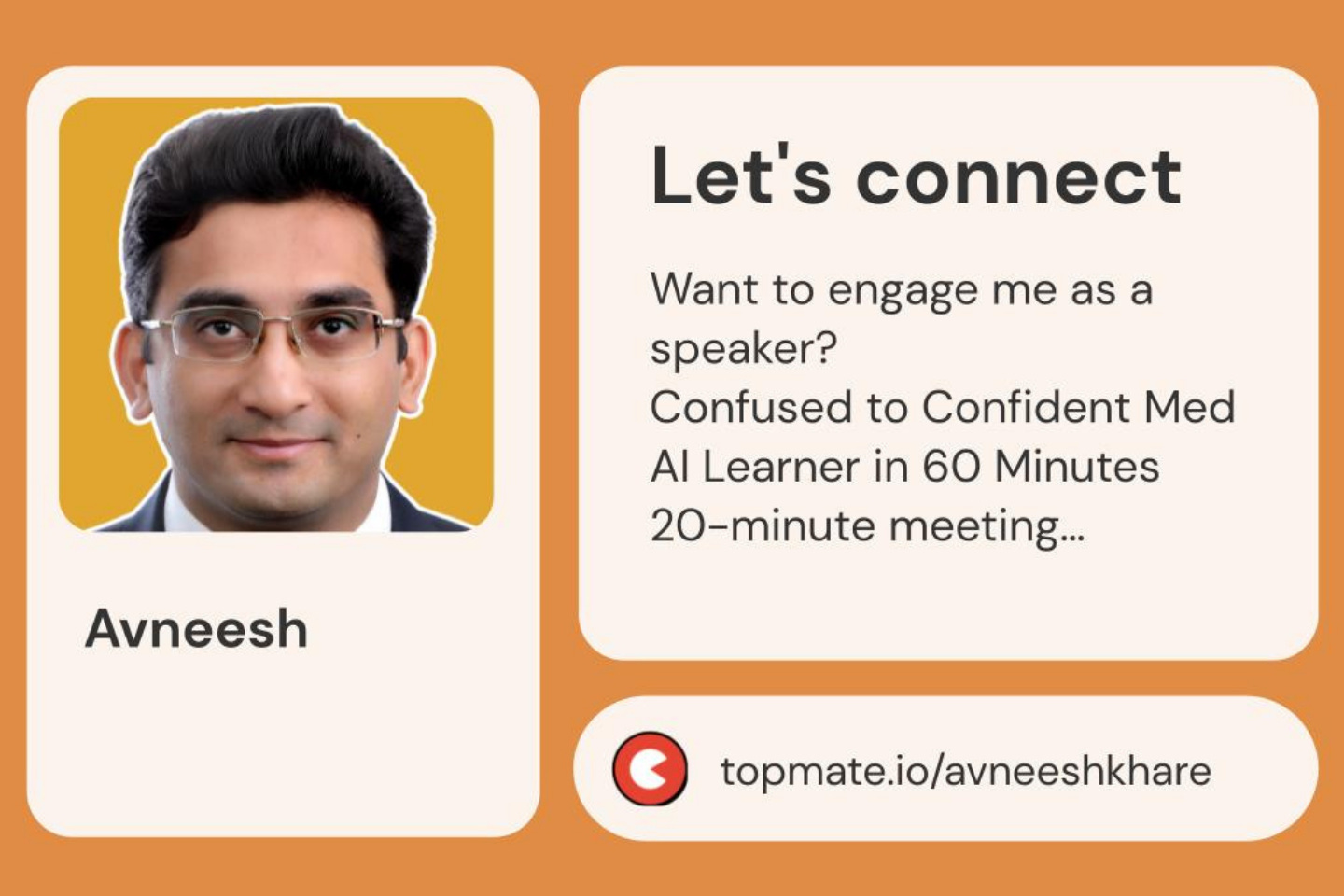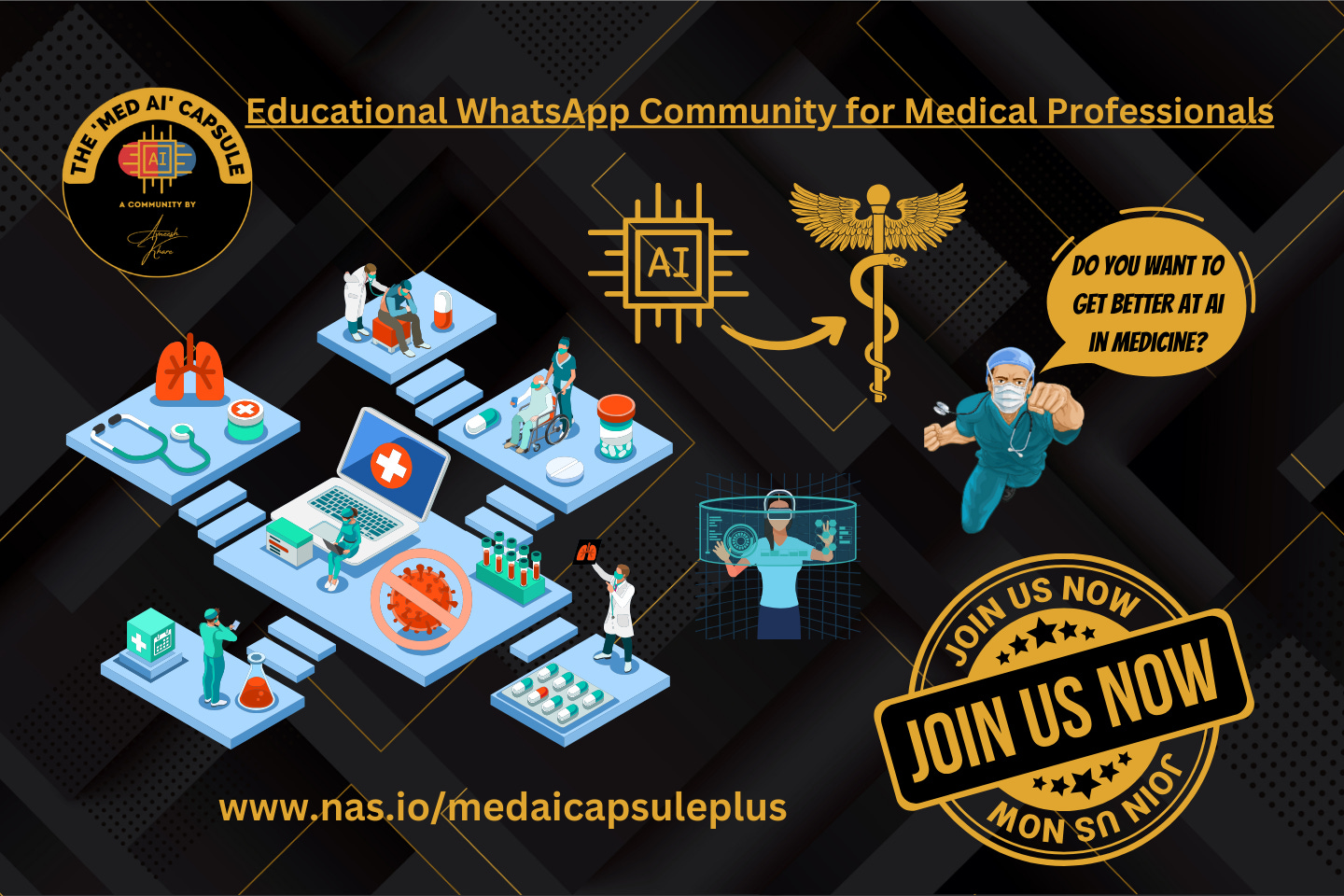👁️ Advancing Medicine with Emerging Tech: Virtual Reality Could Help Hoarding, 3D-Printed Implants May Treat Diabetes, Blockchain May Improve Precision Care, and More! 🔗
Fortnightly Updates on Emerging Technologies in Medicine ⚛️🏥🚀
“The future of innovation has to include not only the technology, but economic viability.” - Frans van Houten (Chief Executive Officer of Philips)
Dear Med AI Enthusiast,
Welcome to this fortnightly supplement to The ‘Med AI’ Capsule weekly newsletter, your inside look at how emerging technologies, other than AI, are transforming medicine.⚕️🤖💊
In today’s supplement:
3 News Updates
2 Research Updates
1 Upcoming Event, and more…
Reading Time: 5 minutes
News Updates 📰
1. 🕶️ Virtual Reality Therapy Could Help Treat Hoarding Disorder 🧹

Why Important: This therapy allowed patients to practice decluttering in a virtual space before doing it in real life. It helped them understand their attachment to possessions and decreased hoarding symptoms.
Caution: More research with larger samples is needed. The virtual experience may not feel realistic to some.
2. 👁️ 3D-Printed Eye Implants May Treat Diabetes
Why Important: This implant allows pancreatic cells to be placed in the eye to potentially treat diabetes without surgery. The eye's transparency allows monitoring of the cells.
"Ours is a first step towards advanced medical microdevices that can both localize and monitor the function of cell grafts." - Anna Herland, senior lecturer in the Division of Bionanotechnology at SciLifeLab at KTH and the AIMES research centre at KTH and Karolinska Institutet
Caution: Testing is still needed in humans. Long-term transplant success and optimal cell function need to be ensured.
3. 🤝 Blockchain Partnership Could Advance Healthcare in Korea

Why Important: This collaboration brings together blockchain experts and a healthtech company to explore improving care through blockchain solutions. It may increase healthcare access in Korea.
“The real-world use cases for blockchain in healthcare show us the importance of this technology. It will be critical to improving the lives of billions of people, and this partnership is an important step forward in making that happen.” - Don Tapscott, co-founder and executive chairman of Blockchain Research Institute
Caution: The partnership is still new, so specific applications and on-the-ground impacts remain to be seen. Continued effort is needed to realize the potential benefits.
Med AI Research Updates 🔬
1. 🔗 Blockchain-Enabled Data Sharing May Advance Precision Medicine

Key Findings: Blockchain's encryption and decentralization could enable federated learning on EMRs from different institutions without compromising privacy. This may uncover insights to improve diagnosis, treatments, clinical trials, and drug development.
Conclusion: This paradigm has potential to transform precision medicine but still faces limitations.
Limitations: Technical complexities remain in implementing federated learning at scale. More evidence is needed to demonstrate blockchain's capabilities for healthcare data sharing. Privacy risks from re-identification may persist.
2. 🕹️ Virtual Reality May Enhance ACL Rehabilitation

Key Findings: The addition of immersive virtual reality to conventional ACLR rehabilitation significantly improved pain scores and IKDC subjective knee scores compared to conventional rehab alone.
Conclusion: Immersive virtual reality can be a valuable adjunct to improve pain and patient-reported outcomes in ACLR rehabilitation.
Limitations: The study showed no difference in objective functional assessments of limb loading, balance, range of motion. Larger trials needed to further investigate efficacy.
Upcoming Event 🧑💻
Industry Showcase 📢
Organovo - Creates human models of inflammatory bowel disease (IBD) using 3D tissue technologies and uses them to develop new medicines for ulcerative colitis and Crohn’s disease.
HPEC - Empowers physicians and patients with self-sovereign identities, using decentralized technology to streamline credential verification and enhance privacy, while also facilitating professional networking and promoting awareness of emerging technologies in healthcare.
SkillUP - Platform provides a comprehensive tool for immersive hands-on medical training, offering advantages like time savings, increased confidence, cost efficiency, and decreased medical errors compared to traditional methods.
Let’s wrap it up with a fun fact!
Google Quantum Computer Is '47 Years' Faster Than #1 Supercomputer. (source)
Stay tuned for our upcoming editions as we explore the latest breakthroughs and dive deep into the transformative power of emerging technologies, shaping a healthier future.
Warm regards,
P.S.: If you're a medical professional intrigued by artificial intelligence, but not sure where to start, feel free to reach out to me for personalised guidance.
You can also check out and join our vibrant Med AI WhatsApp Community for Medical Professionals.








